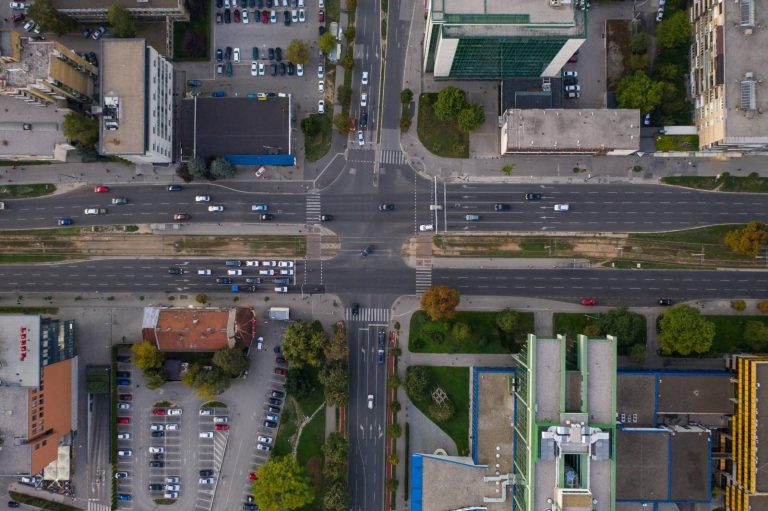The city air makes one free. It also has serious consequences for our health and can cause a wide range of diseases, including asthma and lung cancer. In 2019Polluted air has led to 175,702 years of living with disability due to chronic obstructive pulmonary disease in 30 European countries. Fine particles led to 238,000 premature deaths. Urban traffic and energy consumption contribute significantly to climate change, and most of our infrastructure is not prepared to deal with the negative impacts caused by the climate crisis.
There's a lot of talk about car-centric cities, and how traffic needs to move away from individual vehicles towards greener options. With this rhetoric only just beginning to emerge, the backlash is already in full force: populists accuse environmentalists of hounding drivers as if it were a matter of life and death. This topic is highly charged because owning a car is not just a way to get from point A to point B, but a status symbol, a stark emblem of class.
Owning a car creates a form of right to space, a privilege denied to many. However, access to the automobile has been a milestone for a very long time and did not begin with the invention of the combustion engine. In Honoré de Balzac's novels, the up-and-coming heroes must develop entire schemes to keep their shoes clean—to avoid betraying themselves into high society, because they cannot afford a carriage.
In much of Europe in the twentieth century, traffic and trade were considered paramount in city planning. Infrastructure has been developed to support individual drivers, often at the expense of public transport and public spaces. Many are demanding change.
Green Urbanism envisions urban planning with communities and the environment at the heart of city design. It's about reclaiming urban spaces for the people who live in them, and the promise of making these spaces livable not just for pedestrians, but for drivers as well. European cities have been creeping toward this ethos for decades, intertwining green spaces with architecture, encouraging public transportation, bike lanes, and pedestrian-friendly spaces.
Architects, scientists, activists, and artists are working to reimagine buildings as living, breathing entities that contribute to the urban ecosystem. It affects housing, traffic and work as well as care, fun and community.
However, the path to green urbanism is not without obstacles. Financial constraints, legal entanglements, and public awareness, or lack thereof, are major obstacles. But the prize is worth seeking. Clean air, purer water, and a tight-knit community are treasures that promise a richer urban life.
Today's guests
Jessica Forsyth He is a freelance journalist from London who explores the cityscape, revealing the unique and captivating aspects of urban life.
Adil Csůrök is also the representative of the NGO From the streets to the homesproviding housing first in Hungary.
Lena Mushamer is the co-founder and CEO of A point before the line Policy Officer at Austrian Transport Club. She leads initiatives in mobility solutions and strives for a sustainable, gender-sensitive approach to urban transport.
We meet them at the bicycle and railway housing project in Vienna.
Creative team
Rika Kinga Papp, Editor-in-Chief
Murphy Akiel, Artistic Director
Zylvia Pinter, producer
Zofia Gabriella Babb, executive producer
Margareta Lechner, writer and editor
Salma Shaka, writer and editor
Priyanka Hutchenreiter, Project Assistant
administration
Hermann Riesner General Manager
Judit Ksikos is project manager
Ms. Chela Kardos, Office Administration
Octo crew
Senad Hergić is producer
Video recording by Leah Hochdlinger
Video recording by Marlena Stolzi
Clemens Schmidbauer video recording
Audio recording by Richard Prosek
Post production
Nora Roszkay, lead video editor
Istvan Nagy, video editor
Milan Golovics, Conversation Editor
art
Animation by Victor Maria Lima
Cornelia Frischoff, theme music
Captions and subtitles
Julia Sobota Closed caption, Polish and French translation; Manage language versions
Farah Ayyash, translator
Mia Belen Soriano, translator
Marta Verdebar translated into Croatian
Lydia Nadori, translated into German
Katalin Szlukovényi is a Hungarian translator
Daniela Unifazo, translated into German
Olena Yermakova is a Ukrainian translator
Aida Yermikbaeva is a Russian translator
The Martian Zaslavsky movie with Italian subtitles
Hosted by the Bicycle and Rails Housing Project, Vienna.
source
a report: Health effects of air pollution in Europe2022 by the European Environment Agency.
disclosure
This talk show is produced by Display Europe: a leading media platform based on public values.
This program is jointly funded by the European Union's Creative Europe Program and the European Cultural Foundation.
Importantly, the views and opinions expressed here are solely those of the authors and speakers and do not necessarily reflect the views of the European Union or the European Education and Culture Executive Agency (EACEA). Neither the European Union nor EACEA can be held responsible for it.


